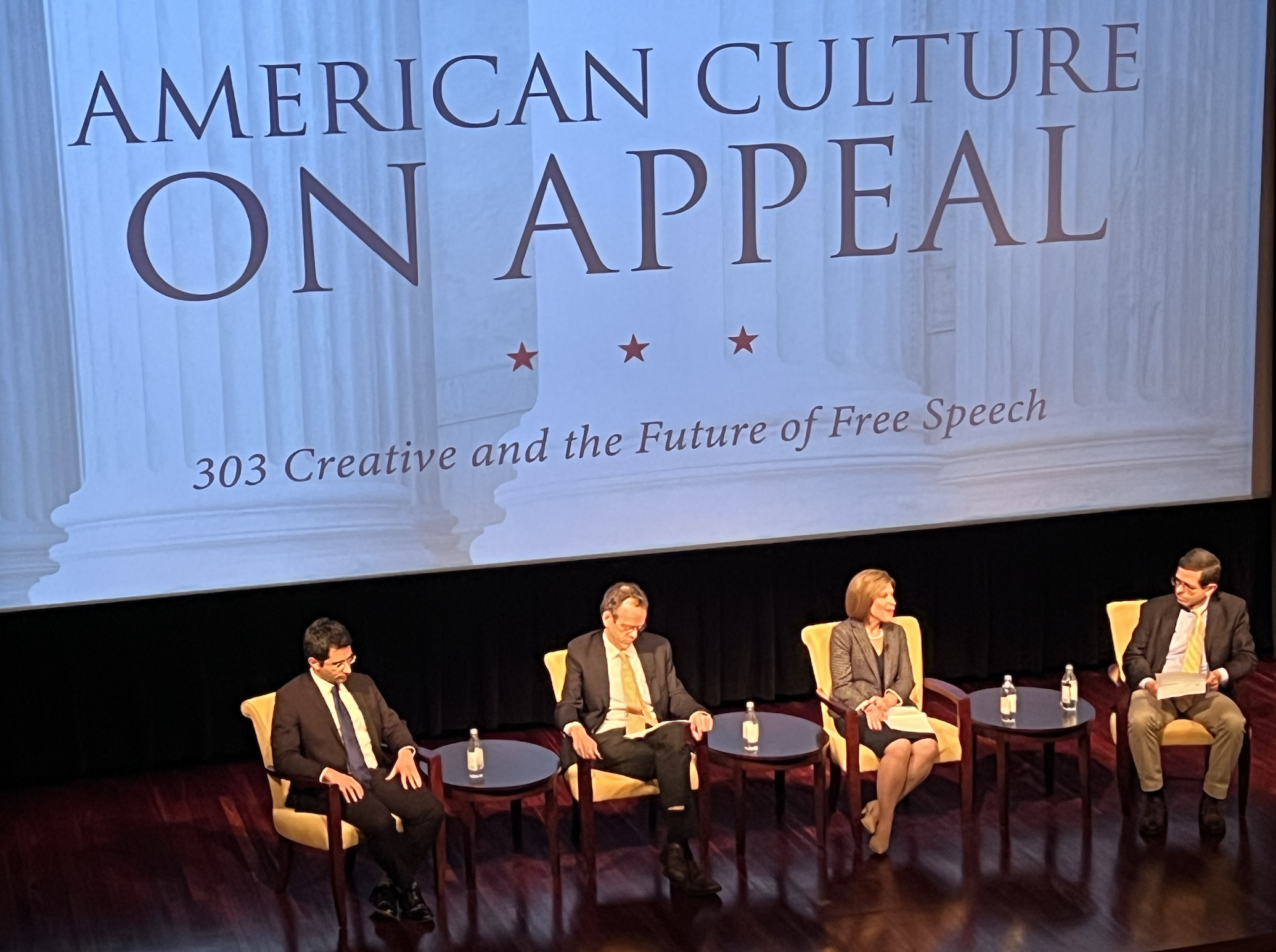Denver, Colorado-based website designer Lorie Smith does not want to be compelled to create custom websites for same-sex weddings, an issue that Supreme Court justices will tangle with in a case that pits the freedom of speech against commercial conduct.
That issue was the subject of a conversation hosted by the Alliance Defending Freedom that transformed into a cordial debate Tuesday night between attorneys discussing the free speech case 303 Creative LLC v. Elenis during an event at the National Archives in Washington, D.C.
Smith, the owner of 303 Creative, filed a lawsuit to challenge a Colorado law that would force her to make custom wedding websites for same-sex couples, the same law that was used against Masterpiece Cakeshop owner Jack Phillips. The director of the Colorado Civil Rights Division, Aubrey Elenis, is the respondent in the case.

SUPREME COURT TO WEIGH WHETHER WEBPAGE DESIGNER CAN DENY SERVICES TO SAME-SEX COUPLES
“We’re the last Western country in the world that continues to have robust free speech protection and that has resisted government compulsion, government censorship laws, like what is being seen right now throughout Europe, Canada, Australia, and New Zealand,” said Kristen Waggoner, the general counsel for ADF who will represent Smith when justices hear arguments in the case on Dec. 5.
David Cole, the national legal director of the American Civil Liberties Union, disagreed and argued that Smith’s choice to enter the public market disallows her from denying specific requests, even if the content she is requested to make defies her sincere Christian beliefs.
“You can’t say, ‘I’m serving the public, but I’m not going to serve gay people,'” Cole said. “You can’t say, ‘I’m going to provide a service to opposite-sex couples, but I won’t provide that same service to same-sex couples,’ because now you’re not open to the public.”
Cole argued that Waggoner’s rationale for defending Smith could allow a “baker that is racist” to refuse service of a cake to a black family if it says “Happy birthday,” noting that the “First Amendment protects racist beliefs as well.”
Notre Dame Law School professor Sherif Girgis was also part of the discussion and often interjected between Waggoner and Cole to make clarifications about Supreme Court precedent. Girgis argued that Smith’s case boils down to whether there is a “compelling interest” to require a person in a creative business to perform a duty contradicting his or her sincere beliefs.
The law professor cited the high court precedent in Hurley v. Irish-American Gay, Lesbian, and Bisexual Group of Boston, saying it established precedent that you “cannot compel someone to say or make or do something expressive, carrying a message they reject unless there’s a compelling interest.”
An audience member later asked a hypothetical question to the panel about what would happen if a heterosexual person asked an artist to design a website celebrating a same-sex marriage but refused service based on that artist’s beliefs about marriage unions.
Waggoner reiterated that Smith is seeking to refuse service based on the message of the content and not the person’s identity. She previously said ADF would defend the same rights for everyone, whether they are “Democrat or Republican, whether they’re Muslim, whether atheist.”
The Colorado Anti-Discrimination Act prohibits a private business from refusing services to members of the public based on identity.
CLICK HERE TO READ MORE FROM THE WASHINGTON EXAMINER
Because Smith is arguing her case on free speech grounds and not religious, the justices are tasked to decide whether she is asking to engage in identity-based discrimination or message-based discrimination when they hear arguments on the case on Dec. 5.
Girgis, who is also a former clerk to Supreme Court Justice Samuel Alito, predicted the justices would rule 7-2 in Smith’s favor when they return a decision in the case sometime before next summer.

